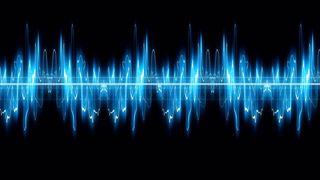Some of our readers may remember the days of vinyl records and cassette tapes, but our younger readers may only know CDs and MP3s. It’s easy to just wave this off as advancing technology, but in truth sometimes the old ways were the best, at least when it comes to pure audio quality. At the same time, portability is a huge bonus and being able to listen to music on the go is well worth a slight downgrade for most people. If you have old CDs lying around that you want to convert to MP3 files, you should looking into the best audio converter software (opens in new tab). And obviously many of the best headphones (opens in new tab) will enhance your music further, if you’re willing to pay for them.
Vinyl Records
There are still people out there holding fast to their vinyl records, who won’t give them up for anything. But why is that? Especially for those of you in the younger generations, what could a record have over an iPod? Is it just nostalgia? The truth of the matter is records in good condition have a higher sound quality than any other medium - even better than a modern CD or DVD. This is because the vinyl can pick up every single part of the sound wave. No information is lost. The records will hold the scale of the sound and you will get everything. If you want the true sound of your music, then records are the way to go. The downside is a small speck of dust or scratch will create noise and static.
Cassette Tapes
While many music enthusiasts consider cassette tapes to be an embarrassment to the audio field, they had a use. While a few old cars actually squeezed a record player onto their dashboard, cassettes were a lot easier to deal with on the go. They were much more compact and resistant to bumpy roads, and anyone could record with them. However, the sound quality on the majority of them left a lot to be desired, and you can’t forget about the tape-eating machines. Cassettes were great for portability, but few people minded when something better came along. These days there is very little reason to favor cassette tapes unless you have an old car that doesn’t have a CD player. if you need to update your old cassettes to a more modern format, check out our best cassette to MP3 converters (opens in new tab) guide.
CDs
This is one of the first digital methods of storing audio available to the public and it didn’t take much encouragement for people to leave their cassettes behind and purchase CDs. Not only did the audio sound cleaner, but CDs lasted longer since nothing actually touched the disc and wore it down. Though the sound quality is better than cassettes, it still doesn’t hold a candle to the vinyl records. This is because a digital file only captures some of the data. Despite this, the majority of people aren’t too bothered by the difference as you only lose a small portion of the audio data. Though CDs are still being manufactured, they too are starting to fall by the wayside as people turn increasingly towards digital media and streaming.
MP3
Easily the most popular and commonly used audio format these days, MP3s are purely digital files that can be stored, transferred between and played directly from your devices. By storing our music directly onto hard drives, we can now store thousands of songs without needing to litter our homes with shelving units. But sacrifices have been made in the name of progress, and MP3 files sacrifice the range and quality in exchange for the convenience of small file sizes. This means that we get reduced audio quality when compared with something like vinyl. The upside of this is that you don’t need to strap a gramophone to your back if you want to listen to some tunes when you go out for a run - instead you can just upload some MP3s to your smartphone (opens in new tab) and you’re good to go. Few options can even come close to the quality of a vinyl record. However, with this rapidly advancing technological society, many are willing to sacrifice that to carry more of their music around with them.
